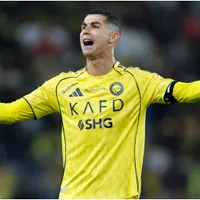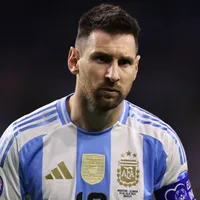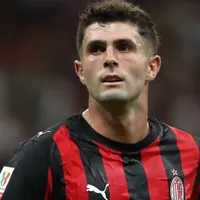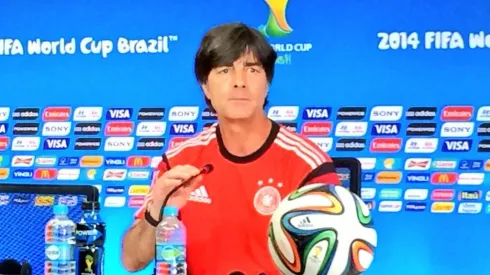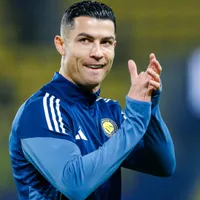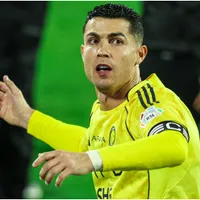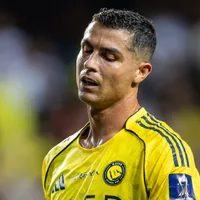
And so it finally happened! 120 minutes on the 13th of July 2014; 120 minutes in the famous Maracana Stadium; 120 minutes to determine the World Champions; 120 minutes to change soccer players into legends.
…and what a tense 120 minutes it turned out to be as a total of 36 fouls were made. With seven goals conceded between both teams before kick-off, this was always going to be a cagey affair. Both sides were set up defensively very solid with the main objective being not to concede.
Chances were few and far between but Mario Goetze made the most of his only real chance in front of the Argentine goal. Bastian Schweinsteiger and Toni Kroos were the heartbeat of a resilient Die Mannschaft completing an impressive 191 passes between them. On the other hand, Lionel Messi was fairly anonymous as he completed just 28 passes and failed to test Manuel Neuer who once again was calmness personified in the German goal.
Angel di Maria and Sergio Aguero were deemed not fit enough for Argentina to be in the starting line-up with Ezequiel Lavezzi and the versatile Enzo Perez continuing in their place. La Albiceleste’s game-plan in the first half was clearly to soak up pressure and try to catch their opponents on the counter attack.
Whilst on paper the Germans were lined up in a 4-2-3-1 formation, Thomas Mueller could be seen often taking up a position alongside Miroslav Klose and Mesut Oezil cropped down both the left and right sides of the Argentina defense time and time again. The midfield movement was fluid throughout much of the match.
Kroos helped make up the numbers down the center of midfield but at times the wide areas were left exposed in the opening 45 minutes with Oezil in particular seemingly reluctant to track back.
Argentina attacked with Lavezzi and Messi taking up areas behind Higuain and Perez coming in from the left side. However, while defending the PSG forward and Perez took up positions on either side of the midfield pairing of Javier Mascherano and Lucas Biglia thus defending in a 4-4-1-1 formation with Messi taking a role behind Higuain. These two banks of four helped keep things tight with the role of Lavezzi and Perez crucial to maintain the desired shape.
Germany’s set up was somewhat altered after half an hour play as Andre Schuerrle came on for a dazed Christoph Kramer who suffered a head injury moments earlier. Kroos was asked to restrain his attacking instinct taking Kramer’s (who was making his full World Cup debut) previously occupied role as Schuerrle joined Mueller and Oezil in an increasingly fluid German attacking line.
Truth be told, both sides cancelled each other in a cagey first half with the only real chances coming from two defensive mistakes (Kroos and Mascherano being the culprits) and a corner kick resulting in Hoewedes smashing the post with a firm header.
Throughout the World Cup, the Lavezzi has shown that his tactical discipline is miles better than that of Aguero’s and he proved so once again in Rio de Janeiro doubling up with Zabaleta behind him to set up an impenetrable barrier down the Argentine right. However, he was withdrawn in half-time with the Manchester City forward taking his place. Perez was shifted to a more central position with Aguero appearing alongside Higuain. This took the Germans by surprise as Argentina missed a couple of good opportunities to open the scoring early on in the second half with Messi being in particular wasteful.

Argentina’s defensive set-up in first half

Argentina’s Set-up after half-time
This change turned the tables in midfield as Germany were now the ones out-numbered in central midfield with Kroos and Schweinsteiger having to deal with the trio of Mascherano, Biglia and Perez (and later Fernando Gago). The Barcelona’s midfielder role was especially important as he was now tasked to provide cover to his back four against a mobile German forward line.
Hoewedes was at times reluctant to do forward runs thus failing to provide the width needed in his side’s attacking third, which theoretically should have been more plentiful as the South American fullbacks now had less cover in front of them. This theory was only tested in the last 10 minutes with Phillipp Lahm finding pockets of space but Germany still failed to take full advantage.
Extra-time started off with more or less the same old story with Rodrigo Palacio showing plenty of heart but little composure and Goetze failing to provide any extra attacking stimulus after his introduction. Unfortunately, there were more clashes of heads than goal-scoring opportunities with Schweinsteiger ending up particularly bruised!
This all changed eight minutes from time as a long overdue German attack down the wing by Schurrle ended in a precise cross to Goetze who showed remarkable composure to put the ball past Romero. With no Lavezzi covering for Zabaleta, Mascherano ended up helping the Manchester City right-back tracking Schuerrle. Thus no one tracked Goetze’s run which caught the Argentine defense by surprise.
Would this have happened had Sabella kept faith in his two banks of four? Should he have kept Lavezzi on the pitch and brought off Higuain for Aguero? Who knows. Goetze certainly won’t care as he takes his place alongside the likes of Andres Iniesta, Zinedine Zidane, Andreas Brehme, Geoff Hurst, Alcides Ghiggia and Paolo Rossi to score for a winning team in a World Cup final.
Germany’s rebuilding process after Euro 2000 has finally paid dividends as the faith showed in Joachim Loew has been rewarded with a fourth World Cup title. Four goals conceded and 18 goals scored in their time in Brazil…few will begrudge them such an honor.

